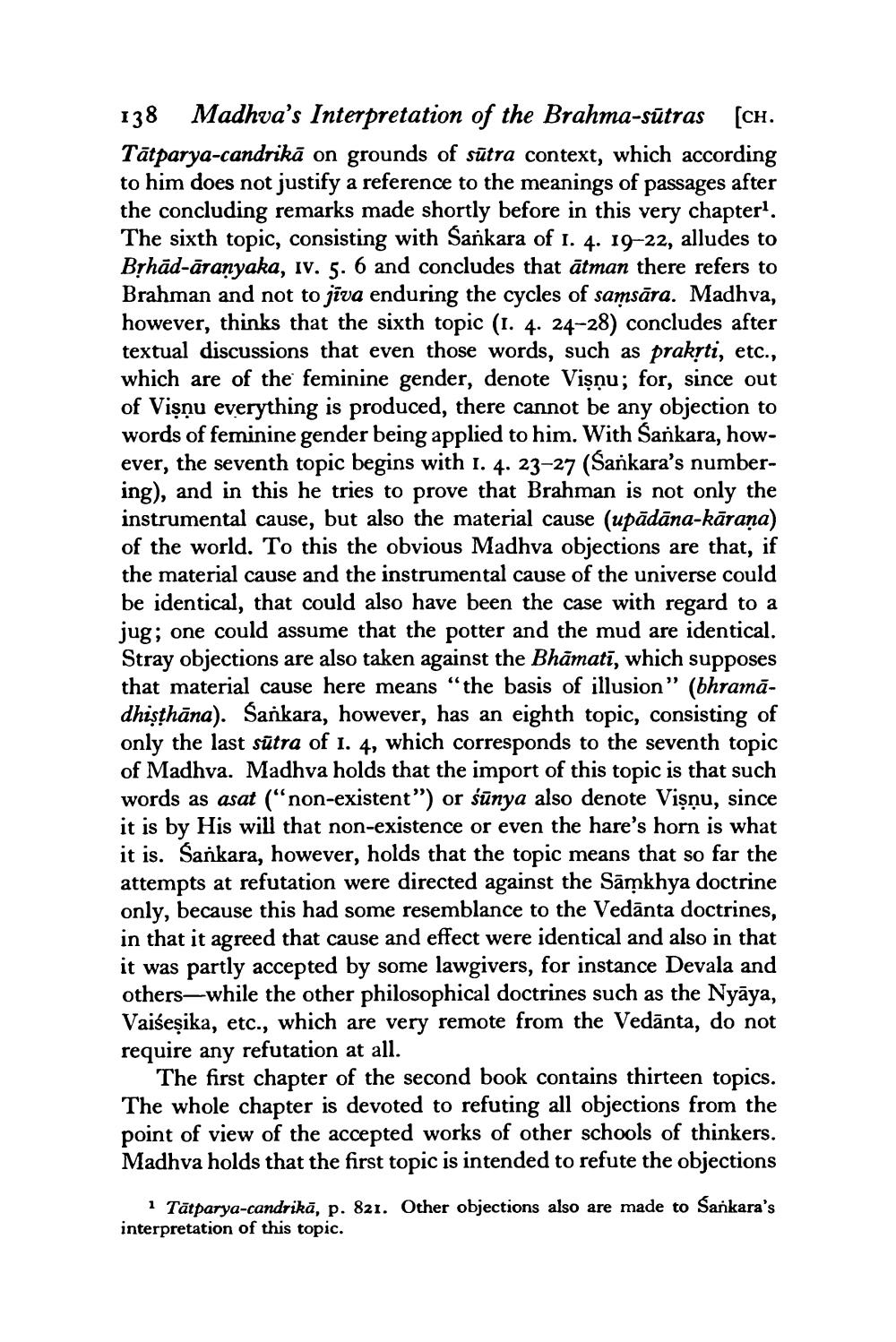________________
Madhva's Interpretation of the Brahma-sūtras [CH. Tātparya-candrikā on grounds of sūtra context, which according to him does not justify a reference to the meanings of passages after the concluding remarks made shortly before in this very chapter1. The sixth topic, consisting with Sankara of 1. 4. 19–22, alludes to Bṛhad-aranyaka, Iv. 5. 6 and concludes that atman there refers to Brahman and not to jiva enduring the cycles of samsāra. Madhva, however, thinks that the sixth topic (1. 4. 24-28) concludes after textual discussions that even those words, such as prakṛti, etc., which are of the feminine gender, denote Vişņu; for, since out of Viṣṇu everything is produced, there cannot be any objection to words of feminine gender being applied to him. With Sankara, however, the seventh topic begins with 1. 4. 23–27 (Šankara's numbering), and in this he tries to prove that Brahman is not only the instrumental cause, but also the material cause (upādāna-kāraṇa) of the world. To this the obvious Madhva objections are that, if the material cause and the instrumental cause of the universe could be identical, that could also have been the case with regard to a jug; one could assume that the potter and the mud are identical. Stray objections are also taken against the Bhāmatī, which supposes that material cause here means "the basis of illusion" (bhramādhiṣṭhāna). Sankara, however, has an eighth topic, consisting of only the last sutra of 1. 4, which corresponds to the seventh topic of Madhva. Madhva holds that the import of this topic is that such words as asat ("non-existent") or sunya also denote Vişņu, since it is by His will that non-existence or even the hare's horn is what it is. Sankara, however, holds that the topic means that so far the attempts at refutation were directed against the Samkhya doctrine only, because this had some resemblance to the Vedanta doctrines, in that it agreed that cause and effect were identical and also in that it was partly accepted by some lawgivers, for instance Devala and others-while the other philosophical doctrines such as the Nyāya, Vaiśeşika, etc., which are very remote from the Vedanta, do not require any refutation at all.
138
The first chapter of the second book contains thirteen topics. The whole chapter is devoted to refuting all objections from the point of view of the accepted works of other schools of thinkers. Madhva holds that the first topic is intended to refute the objections
1 Tatparya-candrikā, p. 821. Other objections also are made to Sankara's interpretation of this topic.




